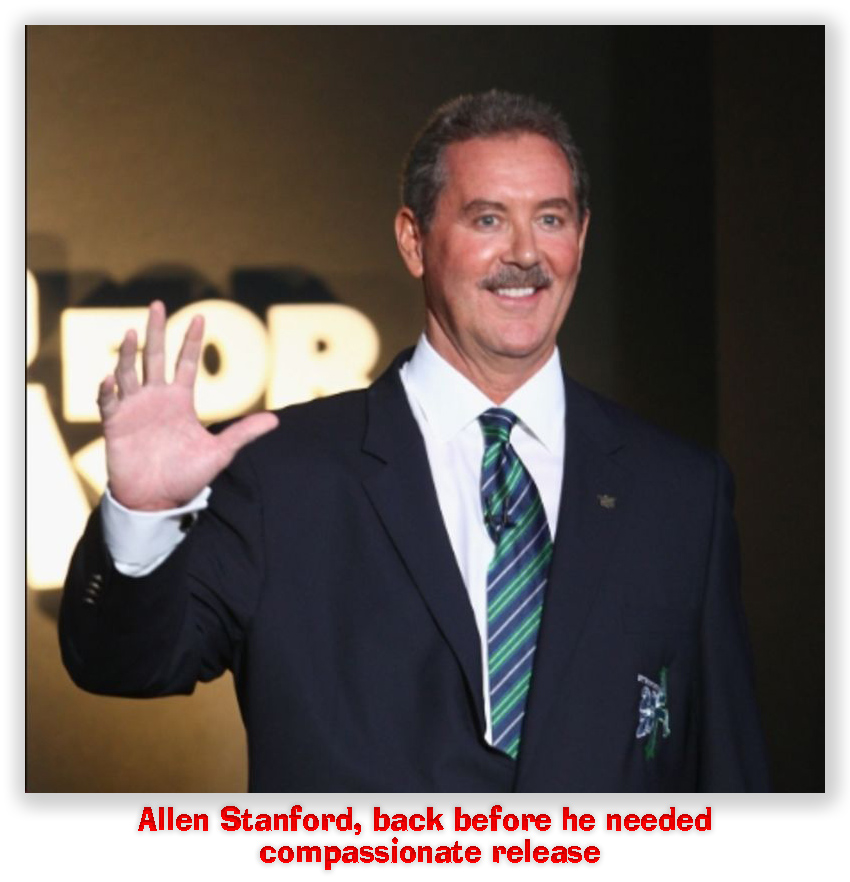We post news and comment on federal criminal justice issues, focused primarily on trial and post-conviction matters, legislative initiatives, and sentencing issues.

5th CIRCUIT SAYS ‘HELP US OUT A LITTLE HERE’ ON COMPASSIONATE RELEASE DENIAL
 When Allen Stanford, one of America’s leading fraudsters, applied for compassionate release under 18 USC § 3582(c)(1)(A) for a third time, his district court was tiring of him just a bit. The judge denied Allen’s latest attempt at a legal jailbreak with a terse denial: “[H]aving considered the motion and the applicable law, the Court determines that the foregoing motion should be denied.”
When Allen Stanford, one of America’s leading fraudsters, applied for compassionate release under 18 USC § 3582(c)(1)(A) for a third time, his district court was tiring of him just a bit. The judge denied Allen’s latest attempt at a legal jailbreak with a terse denial: “[H]aving considered the motion and the applicable law, the Court determines that the foregoing motion should be denied.”
In an August 17 order, the 5th Circuit wanted to give the judge the benefit of the doubt. “[T]he same district judge has ably presided over every chapter of the Stanford saga, and has previously found that Stanford ‘perpetrated one of the most egregious criminal frauds ever presented to a trial jury in federal court’,” the Circuit said, suggesting the district judge probably made a bulletproof decision in denying Allen’s motion and telling him to work toward his release date on March 31, 2103, a mere 79-1/2 years from now.
Nevertheless, the process matters, the 5th seemed to say:
[T]he district court’s order does not tell us that the court based its decision on the § 3553(a) factors. It states only that the court ‘considered [Stanford’s] motion and the applicable law’ and determined that the motion should be denied. We therefore have no reliable indication of the reason for the court’s decision to deny relief. We do not know whether the court denied Stanford’s motion because it concluded—despite new arguments and allegedly new facts—that the § 3553(a) factors still do not warrant early release, or because it concluded that Stanford’s situation is insufficiently ‘extraordinary and compelling,’ or both… Stanford’s third compassionate-release motion may have little chance of success. But judges have an obligation to say enough that the public can be confident that cases are decided in a reasoned way.
The Circuit remanded the case “for the district court to explain its reasons for denial.”
United States v. Stanford, Case No. 22-20388, 2023 U.S. App. LEXIS 21624 (5th Cir. August 17, 2023)
– Thomas L. Root

